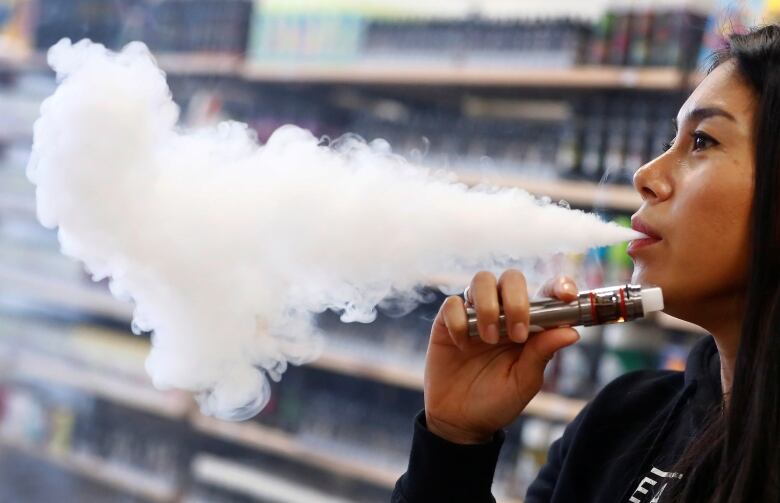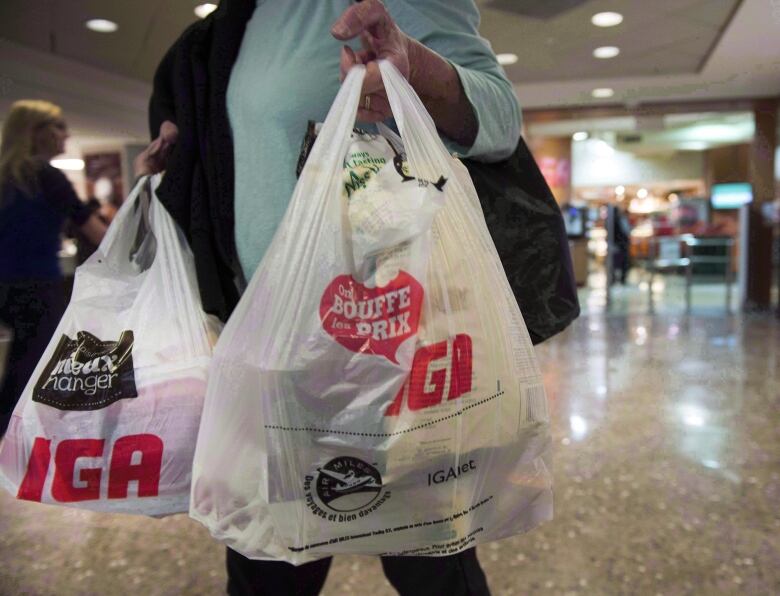10 resolutions at this week's B.C. municipal conference worth knowing about
From vacancy taxes to vaping, local officials across B.C. are pushing for an eclectic number of policy changes

Every year, mayors and councillors from across British Columbia gather for a week of sharing best practices, meeting with provincial government officials, and attending lobbying events some more controversial than others at the Union of B.C. Municipalities Conference.
But they spend the biggest amount of time debating resolutions. Lots and lots of resolutions.
This year brings 215 resolutions that will be considered by delegates, up from178 in 2018, and 143 resolutions in 2017.
"Local communities are at the forefront of many of the concurrent crises, whether it be climate change, the housing crisis, the overdose epidemic," said Victoria councillor Sarah Potts.
"Any effort that we can do to support the good work of the province and to those who bring greater awareness to these issues, I think isreally needed."
All of the resolutions are about issues that can impact local governments. But here are ten topics in particular worth highlighting.
1) Consultation, consultation, consultation
A number of the resolutions relate directly to disputes municipalities have been having with the B.C. government around jurisdiction, particularly land-use.
Among them are SR1 (submitted byentire UBCM executive), which asks the province to talk directly to municipalities when making changes, resolution B3 (submitted by Maple Ridge), which asks the province to respect local government autonomy, and B75 (submitted by Spallumcheen), which asks the government to stop changing Agricultural Land Commission regulations until local residents have provided input.
2) Regulate vaping
While the B.C. government recently announced they were "working on a comprehensive response"to the surge of vaping, particularly among teenagers, local officials in city councils and school boards have been pressing for changes for quite a while.
Resolution B59 (submitted by West Kelowna) calls on the province to enact strict regulations for marketing and selling e-ciagettes and vapour products to chlidren, and resolution B173 (submitted by Coquitlam) calls upon higher levels of government to limit their sales,and create new legal enforcements.

3)Expand the vacant homes tax
While the province has a speculation tax for empty homes in the Lower Mainland, Greater Victoria, Nanaimo and the Kelowna area, only Vancouver is allowed to levy its own vacant home tax.
That's because Vancouver is governed by a separate charter than B.C.'s other municipalities but a number of mayors would like the province-wide Community Charter changed so they can create their own tax.
"Right now we have no rights or controls at all," said White Rock Mayor Darryl Walker, whose municipality put forward resolution B181, asking the province for the appropriate changes.
"We have very little opportunity to create affordable housing and yet there are people in our community that very much need it ... and it's also a way of making our communities more vibrant. Anempty lot on Marine Drive does absolutely nothing for anybody."
4) Safe drug supply
With B.C.'s public health emergency around overdose deathsin its fourth year, Victoria council passed a motion pushing for a safe drug supply as a possible solution.
"Safe supply is an approach that [uses] existing pharmaceutical grade medication as an alternative to the highly toxic street drugs for people at risk of overdose," said Potts, who put forward Victoria's resolution (B171) back in January.
Since her resolution, Vancouver Mayor Kennedy Stewart and others have begun similar lobbying.
"It's always encouraging to see other people stand up," said Potts, "but it also just reminds us how pressing this this issue is and ... just how strongly [we] need to take immediate action."
5) Plastic bag bans
Victoria had its well-publicized ban on single-use plastic bags struck down in courtbecause it was ruled that municipalities currently don't have the power to regulate the environment without explicit approval by the provincial government.
Resolution B148, submitted by West Vancouver, asks the province to specifically allow regulation of single-use items.
Its one of 27 separate motions at the UBCM concerning environmental policy, a record number.

6) Eliminate fare fines
Burnaby has put forward two motions around transit fares one that asks the province to "investigate avenues of providing free or further subsidized transit passes," and one that asks for other options for settling fare evasion tickets if the person is low-income.
"It's really a burden on those who can't afford to pay the fares in the first place. And now all of a sudden they're stuck with us with these huge fines," said Burnaby Mayor Mike Hurley.
He argued that fines from low-income people was a negligiblepart of TransLink and BC Transit's budget.
"I think that we really need to have another look at the fine system and what we're trying to accomplish."

7-9) Photo radar, campaign finance, newspaper ads
Not all resolutions at UBCM will get the same amount of attention, but plenty can provoke interesting policy discussions, or lead the way for future changes from the government.
For example, B1 requests a change to the Local Government Act and Community Charter so municipalities wouldn't have to publish all public notices in a newspaper. B8 (submitted by West Kelowna) asks for municipalities to have the power to independently implement photo radar.
And B111 (submitted by the City of Langley) asks to raise the maximum that candidates for local office can spend on their campaign from $1,200 to $5,000 the idea being that people wouldn't have to rely on any donations, but still run a competitive campaign if they wanted to.
10) On the subject of caves
B.C. doesn't have a Cave Protection Act. At least not yet.
But the village of Tahsis a small Vancouver Island community at the end of an inlet wants that to change, asking for a Cave Protection Act "in order to conserve caves, in perpetuity."
The resolutions committee notes that "UBCMmembership has not previously considered a resolution asking the Province to enact cave protection legislation".
But such is the nature of UBCM resolution that there's a first time for everything.












_(720p).jpg)


 OFFICIAL HD MUSIC VIDEO.jpg)
.jpg)



























































































